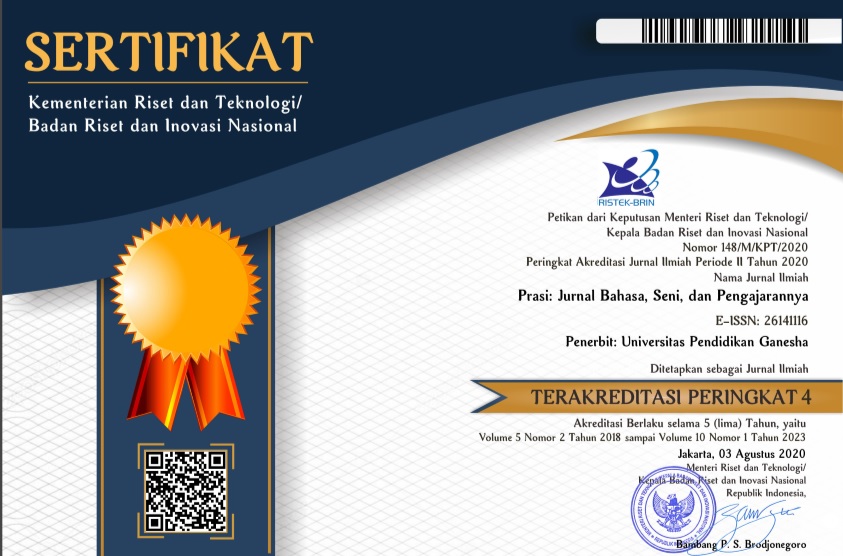PENGAJARAN BAHASA INDONESIA DALAM KURIKULUM BERBASIS KOMPETENSI
DOI:
https://doi.org/10.23887/prasi.v6i12.6823Abstract
In reformation era, people wish to have changes in various dimensions of life. They attempt to developthe quality of human resources in order to have high competitive power through the modificationof educational curriculum, which is in accordance with the change of time and the demandof community development.The operation of the educational system, therefore, has moved from centralized system to decentralizedone. This movement can be considered as the consequence of the application of the educationalrule No. 20, the year 2003. In this case, competency based curriculum implies that theteaching of language and Indonesian literature refers to the achievement of standard competencybased on the nature of the teaching and learning of indonesian, that is, communicative competenceand literature appreciation. These two competencies should be presented through the teaching andlearning of language (communicative) skills, and should be done integratedly, both in an attempt toachieve linguistic competency and to achieve competency in literary appreciation.
Key words: teaching and learning, Indonesian language, competency based curriculum
Downloads
Issue
Section
License
Authors who publish with Prasi agree to the following terms:- Authors retain copyright and grant the journal the right of first publication with the work simultaneously licensed under a Creative Commons Attribution License (CC BY-SA 4.0) that allows others to share the work with an acknowledgment of the work's authorship and initial publication in this journal
- Authors are able to enter into separate, additional contractual arrangements for the non-exclusive distribution of the journal's published version of the work (e.g., post it to an institutional repository or publish it in a book), with an acknowledgment of its initial publication in this journal.
- Authors are permitted and encouraged to post their work online (e.g., in institutional repositories or on their website) prior to and during the submission process, as it can lead to productive exchanges, as well as earlier and greater citation of published work. (See The Effect of Open Access)

.png)
.png)









